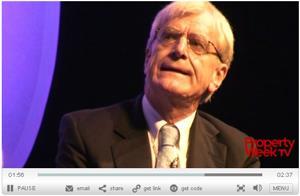The BCSC has called on government to make a strong commitment to town centres as a focus for investment as part of the proposed National Planning Policy Framework, and has said the business rates regime acts as a barrier to retail growth.
The call comes after the BCSC published a report which found more than one in ten UK stores could remain vacant in the long term, setting a new benchmark for empty retail units of 11%, compared to an average before 2007 of 6-7%.
In its latest report, ‘Empty Shops, What does the future hold for town centres’, which has been published at its conference in Manchester, the BCSC predicts that vacant units will peak at 13-14% in the immediate future, before falling to around 11% in the long run.
The research identifies demographic change, the rise of internet retailing which now accounts for around 10% of retail sales, the expansion of supermarket chains, and the current economic climate.
Richard Akers, BCSC president and managing director for retail at Land Securities, said: “UK business rates must be urgently reviewed if retail businesses are to survive and compete with rising online sales on an even footing. Likewise, the imposition of empty rates on even the smallest properties is hindering owners’ investment in their properties, and therefore their ability to work with town centre managers in developing centres that meet residents’ needs.”
The BCSC has sent its findings to Mary Portas, the government’s high street retail guru, who is currently compiling a report on how to save UK high streets.
The BCSC has added that some town centres could benefit from the reduction in the total amount of retail space, particularly where the units are small, old-fashioned or poorly configured.




























No comments yet